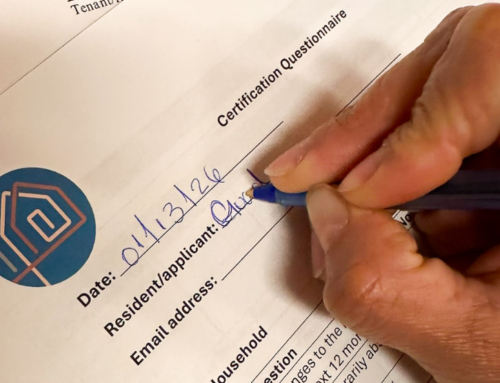
Dear Friends,
I’ll never tire of hearing about Clara Brown, or retelling her extraordinary story.
“Aunt Clara” is the namesake of the affordable housing we’re building. We often commemorate famous people on the anniversary of their birth. Yet Clara did not know the date, or even for certain the year, of her own birth. What we do know is that Denver mourned on October 23, 1885, at news of Aunt Clara’s death. We chose that day to remember Aunt Clara and celebrate her legacy.
Clara Brown was born into slavery in Virginia sometime around 1800. She married Richard when she was barely eighteen, and together they had four children. When Clara was thirty-five their enslaver died, and their family was suddenly separated. She never saw Richard again. Clara was sold to a man in Kentucky, from whom she took her last name. For the next twenty years she raised George Brown’s children instead of her own.
After purchasing her own freedom at the age of fifty-six, Clara worked her way around the Midwest while searching for the family she had never stopped loving. In 1859 she landed a job as cook for gold-rushers on a wagon train heading west to the instant boomtown of Denver City.
Entering her seventh decade, all the accomplishments for which she is best known were still ahead of her.
First in Auraria and then in Central City, Clara worked as a laundress, cook, and midwife. She invested in mining properties and other real estate. Most gold-rushers met with disappointment and poverty. Clara overcame persistent racial and gender discrimination to amass a modest fortune.
Yet by 1880, Clara was broke. She had been swindled numerous times by jealous competitors. Several of her properties burned to the ground under mysterious circumstances. But it was mostly her own generosity that drained her fortune. In the words of the prophet Isaiah, she had spent herself “on behalf of the poor and needy.”
Clara had paid the way for at least sixteen former slaves to start new lives in Colorado and provided scholarships for young black women to study at Oberlin College in Ohio. She regularly took in sick or injured miners, nursing them to health at her own expense. Churches from different denominations were built with generous donations from Clara Brown.
The prophet Isaiah promises that God hears the prayers of those who share what they have with the hungry. Yet near the end of her life Clara could not pay for her own housing and had to be taken in by a friend in Denver. And although she never stopped searching, it appeared that she would die without finding her lost family.
Then in February of 1882 Clara received news that one of her daughters, Eliza Jane Brewer, had been located! Clara didn’t have money for a train ticket, so an anonymous donor paid for her to travel to Council Bluffs, Iowa, to reunite with her daughter—and a granddaughter—after forty-seven years of separation.
Clara Brown died in Denver on October 23, 1885. Her funeral was attended by mayors, governors, and other Colorado dignitaries. Clara’s grave can be found near the east edge of Riverside Cemetery, not far from today’s York Street and just over a mile from the housing community that will soon bear her name.
How does someone endure such heartbreaking loss and yet persevere to live a life of generosity and self-emptying love? Clara Brown said: “I just do what Jesus tells me to do.”
Peace in Christ,
Jeff Johnsen
Executive Director







